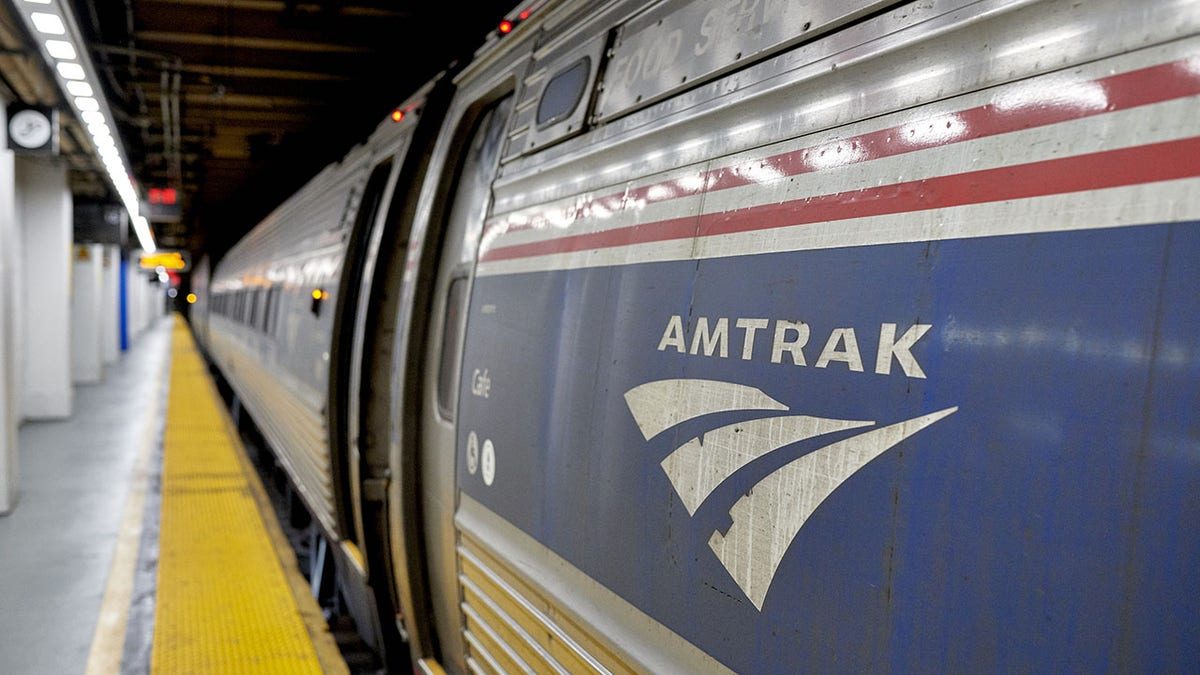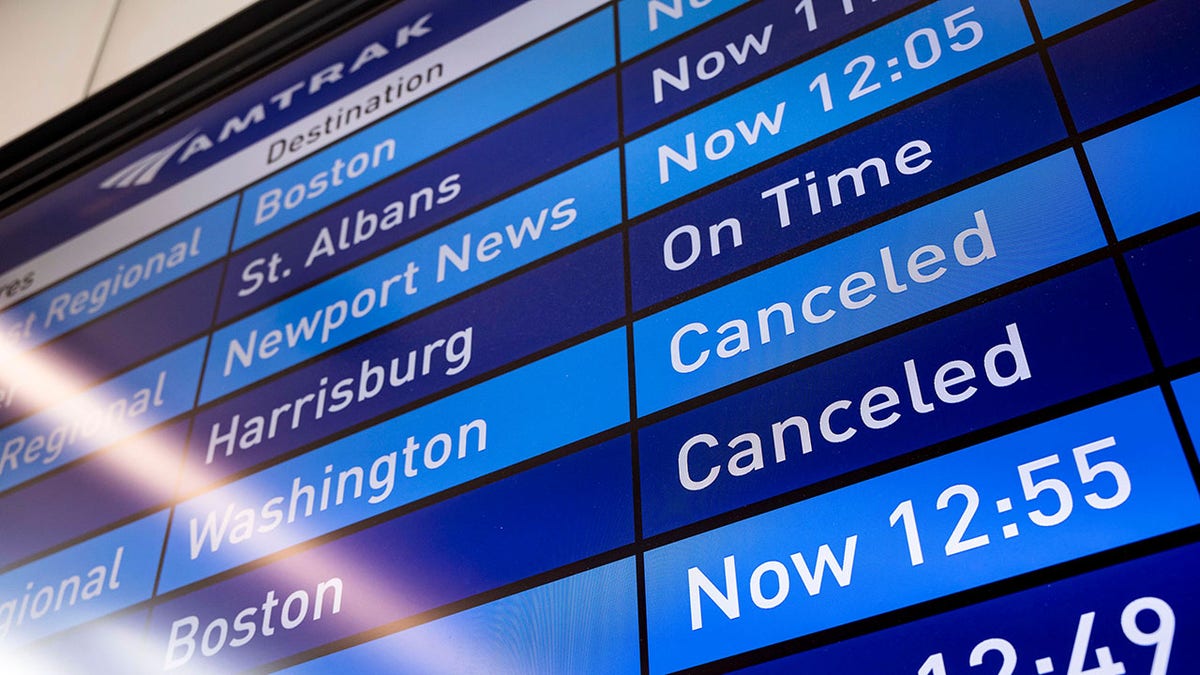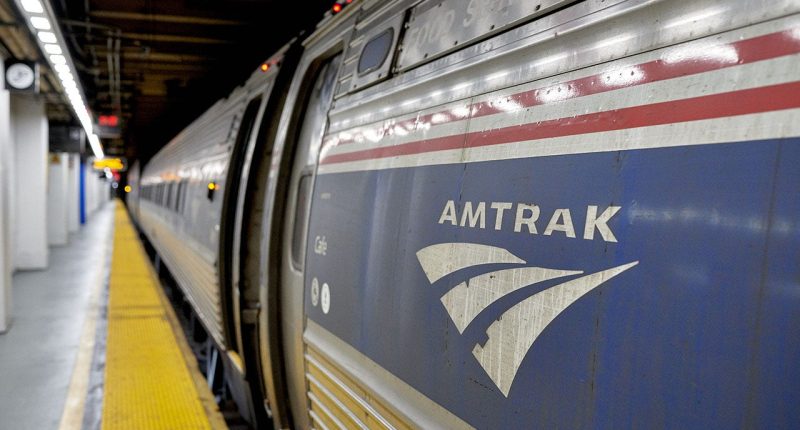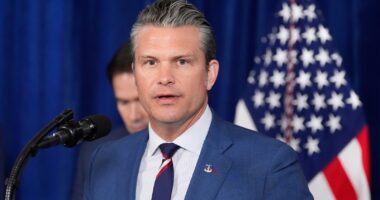Share this @internewscast.com
At least 119 Amtrak employees and doctors took the railroad company for a ride in a massive $12 million health fraud scheme, a watchdog found.
Amtrak’s Office of Inspector General (OIG) revealed that staff members situated in regions including Pennsylvania, Delaware, New Jersey, New York, Maryland, Connecticut, and Washington, D.C., received cash bribes from three healthcare providers. These bribes were given in exchange for the employees’ and their dependents’ insurance information as part of a scam that took place from 2019 to 2022.
“The number of employees who nonchalantly engaged in this scheme to misappropriate Amtrak’s resources indicates not only a significant failure in basic ethical standards but also highlights a problematic culture within the workforce, especially in the northeastern areas, where such criminal conduct became seemingly acceptable,” stated Amtrak Inspector General Kevin H. Winters.
Fox News Digital has reached out to Amtrak.

An Amtrak train at Penn Station in New York City. (Getty Images)
“Similar to other companies, Amtrak relies on health benefit providers and insurers to detect irregularities and prevent medical insurance fraud,” the company expressed. “Amtrak fully condemns this disgraceful act that transpired between 2019 and 2022 and is taking immediate action against all current employees implicated in the inquiry.”
“While we continue to work closely with the OIG to identify and stamp out fraud, we also continue to work on other initiatives to address this issue,” the statement added. “Amtrak has implemented various measures to enhance fraud prevention and empower employees to report suspected wrongdoing. These efforts include increasing oversight and strengthening efforts to eliminate fraudulent schemes.”

Canceled trains are displayed on an Amtrak departures board in Moynihan Train Hall at Penn Station in New York Dec. 23, 2024. (Yuki Iwamura/Bloomberg via Getty Images)
The OIG launched a probe when an agent noticed unusual billing patterns in reports by data analysts. Three New York healthcare providers with “questionable” billings who shared a high number of Amtrak employees as patients were identified by investigators.
An undercover agent posing as an Amtrak employee met with Punson Figueroa, aka “Susie,” an acupuncturist from Long Island City, New York, June 16, 2021. During the visit, Figueroa told the agent to sign his name 30 times for service without dating the signatures, the OIG said.
Figueroa then submitted alleged fraudulent claims to Amtrak’s healthcare plan, saying the agent had visited providers at least seven times in May 2021 for acupuncture and physical therapy. The agent visited Figueroa’s office again on July 29, 2021, where she allegedly handed him an envelope containing $1,000.
Figueroa continued to use the agent’s insurance information to submit dozens of fraudulent claims to Amtrak’s healthcare plan, investigators said.
Figueroa pleaded guilty to defrauding Amtrak’s healthcare plan, was sentenced to three years of supervised release and was ordered to pay restitution of $9.05 million. Two other healthcare providers and a medical biller have also pleaded guilty for their roles in the scheme.

Authorities in North Tonawanda said a Niagara-bound Amtrak train struck a passenger vehicle May 17, 2024. (WKBW Buffalo)
Michael DeNicola, a podiatrist from New York, pleaded guilty June 29, 2022, to conspiracy to commit health care fraud, distribution of a controlled substance and unlawful possession of a gun. He has not yet been sentenced.
Regina Choi, a medical biller from Woodside, New York, who previously worked for Figueroa, pleaded guilty to conspiracy to commit health care fraud June 11, 2024, for submitting false and fraudulent claims to the Amtrak health care plan and paying cash kickbacks to Amtrak employees. Her sentence is also pending.
In 2018 and 2019, OIG auditors issued separate reports that said Amtrak could strengthen measures to identify fraudulent medical claims sooner. Both reports noted billing patterns indicative of potential fraud among hundreds of providers, the OIG said.

















